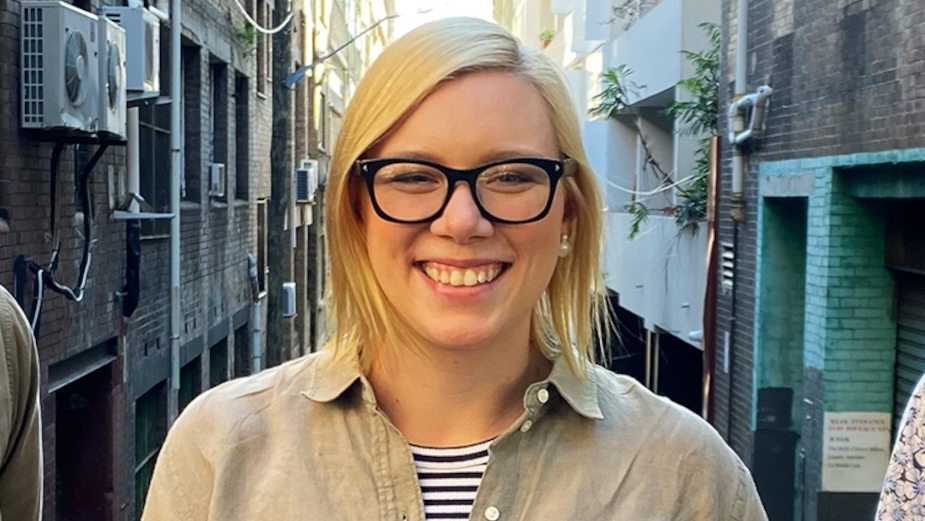
Bossing It: The Need to Be Brave with Rebecca Turner

Bec was recently appointed as managing partner at The Core Agency, taking an ownership stake in the business. Her background includes a blend of agency and client-side where she’s worked across a broad range of categories. She is a natural when it comes to bringing people together and is proof that positivity is the key to solving any problem.
LBB> What was your first experience of leadership?
Rebecca> Being the eldest sibling, I’ve always felt a level of responsibility for others. I come from a big family, with three younger brothers, so being a good role model was just part of the deal. My brothers love to give me a hard time and still joke about me being ‘the boss’. Both my parents are the eldest in their families too, so I’ve always seen their own independence and the way they look out for their families and have wanted to do the same.
LBB> How did you figure out what kind of leader you wanted to be – or what kind of leader you didn’t want to be?
Rebecca> Defining my leadership style is something I continue to work on. While we all have our core values, it’s really our behaviours that define the kind of leaders we are and those are being tested daily. It certainly comes into focus most in the moments where my values are challenged and I need to be brave. You know you’re going to have to speak up and not everyone’s going to like it. The things I strive for most are to be fair, accountable, and empathetic. I’d feel crushed if one of my team ever felt I hadn’t given them every opportunity to succeed.
LBB> What experience or moment gave you your biggest lesson in leadership?
Rebecca> The moment that’s given me the biggest lesson in leadership would have to be the first time I experienced a negative culture and saw the role that leadership played in it.
In the early years I would write off ‘culture’ as a bit of corporate wank – it was just code for drinks on the company. Little did I know, I just hadn’t experienced a bad one yet. I’ve always considered myself a hard worker but was amazed at how quickly my motivation went when I was in an environment where I didn’t feel supported.
Now as a leader I take my role in culture very seriously. Culture needs to be protected and leaders need to hold themselves accountable to that. In the last two years we’ve spent a lot of time defining our culture, our values and the behaviours that result from this. It’s a competitive advantage for us and something I’ll never take for granted again.
LBB> Did you know you always wanted to take on a leadership role? If so how did you work towards it and if not, when did you start realising that you had it in you?
Rebecca> After working full time for about five years, I realised I wanted to strive for a management position. I’d taken on a client-side role that was very focussed in digital and quite independent from the rest of the team. It made me appreciate how much I missed collaborating and coaching others. It took a while to identify (even though my mum and husband insist they told me!). Several months and pro/con lists later, I made the move back to agency-side. In terms of the steps I took, I was strict with myself about only taking a role that was integrated with direct reports, ensuring it would set me on the right path. I’ve always tried to keep in mind the narrative my CV tells, to ensure it is building a clear story.
LBB> When it comes to ‘leadership’ as a skill, how much do you think is a natural part of personality, how much can be taught and learned?
Rebecca> Whether leadership is part of someone’s character or something they learn is an interesting question. Julia Gillard and Ngozi Okonjo-Iweala have written an excellent book ‘Women and Leadership’, which covers the lived experience of ten female leaders and the influences that got them there. Four of the leaders they spoke to are the eldest in their family and they all talk about being brought up to be responsible for others, which is certainly familiar to me. Of the four, Hillary Clinton and Christine Lagarde also talk about only having brothers, and its connection with being raised free from gender limits. I don’t think I need to convince anyone of the influence gender can have on women’s access to leadership – 70% of nations have never had a female in the top job!
When I reflect on my own childhood, I recall mum and dad returning from parent teacher interviews saying my teacher had said ‘she has strong leadership skills’. As a kid, you don’t really appreciate what that means. It’s up there with ‘they have potential’ or ‘they need to apply themselves’ but thinking about it now, it did emerge as a theme for me.
Clearly there are many layers to the debate. While someone’s life experiences or personality traits might reveal leadership as a more obvious path, I still think anyone’s capable of learning to be a leader. In its most basic form, it simply means going first, setting an example, and looking out for others – we can all do that.
LBB> What are the aspects of leadership that you find most personally challenging? And how do you work through them?
Rebecca> The aspect of leadership that I find most challenging is when the needs of an individual don’t align with the broader team, a client, or the agency as a whole. It could be that they think they’re ready for something that others don’t, or that an idea they’ve had hasn’t been bought, or even the more extreme end of a client not seeing them as the right fit, them not performing or having to make a role redundant.
This is the most challenging because you have to act, but you know you’re going to upset someone in the process. It could hurt their self-esteem, demotivate them and, in the worst cases, affect other areas of their life. The only advice I can offer here is to have these conversations early, make sure they hear it from you first, keep it objective and then keep checking-in – don’t give in to avoidance. But it still sucks.
LBB> Have you ever felt like you've failed whilst in charge? How did you address the issue and what did you learn from it?
Rebecca> I fail all the time. The thing about being a leader is you’re often having to do things first so there’s always a risk of getting it wrong. But we need failure to learn (or sometimes to remind us of the lessons we’ve forgotten). I’m generally talking small fails – not managing expectations, leaving something too late, making assumptions – but there is the occasional big one too. They suck at the time but that’s growth.
In terms of how I learn from failure, I like to try things, change things, then watch, reflect, and ask for feedback. If I get it wrong, I own it and if it’s impacted someone else – I apologise. This has taken some practice. I used to find it hard to admit my faults, and often still find myself making excuses in my own head. But I’ve gotten better at identifying this behaviour and forcing myself to take responsibility. I do my best to share my failures too, even if it’s hard to admit, that way others can learn as well. Fail loudly!
LBB> In terms of leadership and openness, what’s your approach there? Do you think it’s important to be transparent as possible in the service of being authentic? Or is there a value in being careful and considered?
Rebecca> Both are important but if I had to choose, I’d say transparency and openness over being careful and considered. Truth-telling is critical. Afterall, if you don’t have transparency then how can you have trust? And I think we can all agree that after the last two years, trust is essential to the future of the workforce. This can still be done in a kind way though. Share early, choose your environment, and remember the power of the follow up.
LBB> As you developed your leadership skills did you have a mentor, if so who were/are they and what have you learned? And on the flip side, do you mentor any aspiring leaders and how do you approach that relationship?
Rebecca> This is probably an unpopular opinion but I’m not a big believer in having a mentor (at least in the traditional sense). It’s like friendship – you’re never going to get everything you need from one person. And everyone’s leadership style is different and unique to them.
The benefit of working with lots of different people is learning from their different styles and then finding the best recipe for you. My style might not be their style, and that’s okay – we all have a superpower to own. For this reason, I like to get mentorship from lots of people, often outside the industry, then I’ll use that input to find what works for me. If in doubt, I usually turn to my original leaders – mum and dad. My mum always backs herself and has the most generous heart, and my dad is fiercely logical, a very experienced leader and diplomatic to a fault, so they’re both excellent sounding boards.
With regards to mentoring others, I once heard former Australian Deputy Prime Minister Julie Bishop say, ‘As female leaders we have a responsibility to make it easier for the next one’. This really stuck with me so I make a conscious effort to help others get ahead, particularly women, whether it’s coffees, introductions, affirming others’ voices, crediting their ideas – whatever I can do to help. In terms of my own team, I try to share my experience with them, offer suggestions, then give them room to find their own way. This has taken practice as I can be quite particular, but I know that being too prescriptive doesn’t serve their growth (I’m sure they’ll all do a knowing nod when they read this).
LBB> It's been a really challenging year - and that's an understatement. How do you cope with the responsibility of leading a team through such difficult waters?
Rebecca> I’m very lucky to be married to my best friend. He’s a good listener and thinks completely differently to me so gives great perspective. A quick cuddle from him makes every issue feel smaller and helps me stay strong for everyone else. It doesn’t have to be a husband though, you just need people around you who you can be vulnerable with and who build you up, that’s important. Also knowing what you need to show up for your team and prioritising that – listening to your favourite poddy, a walk with a friend, reading a chapter of your book, your go-to Spotify playlist or proper food (being hangry is real, people!)
In terms of managing my team specifically through Covid I’ve tried to remain consistent to combat uncertainty, focussed on sharing my own difficulties to create an environment where everyone feels comfortable sharing, made myself available and listened fully, and tried to give everyone things to look forward to. The reality is they help me as much as I help them. If I miss our stand-up meeting I can feel flat for the rest of the day.
LBB> This year has seen the industry confronted with its lack of action/progress on diversity and inclusion. As a leader how have you dealt with this?
Rebecca> The industry is behind and it’s incredibly important we address it. As creative agencies, how can we expect to shape culture (or at least reflect it) if we’re all coming from the same perspective? It’s essential we start to attract and elevate more diverse voices.
I’m working on my own self-development here to better understand oppressive systems, the unique challenges faced by marginalised groups, and identify my own privilege and where I need to course correct.
As a female leader, I’m particularly passionate about addressing gender stereotypes in the workplace and helping women further their careers. I’m very proud to say that in the last 14 months the agency has gone from 25% to 47% female. We’re also engaging an external consultant to run LGBTQI awareness training with the whole agency, as well as determining what other steps we need to take to become a more inclusive workplace. The benefit of being in an indie agency is you can drive change quickly.
LBB> How important is your company culture to the success of your business? And how have you managed to keep it alive with staff working remotely in 2020?
Rebecca> Culture is incredibly important to our success – both in retaining talent and clients. The bBusiness partners are both very dedicated, kind, and easy-going people, so that really sets the tone for the rest of the agency. Our clients consistently comment on how nice everyone is to work with, regardless of who you work with in the team.
As we’ve grown, we’ve had to become more deliberate in how we maintain our culture. Our strategy in lockdown was to ensure this didn’t fall away and that we were doing even more. Getting in fantastic speakers for our Work/Life Hacks program – learning how to take brilliant portraits gave us all a creative outlet and rewarding distraction. We also did STEPtember last year – a great alternative to bonding over drinks, which encouraged a healthy competitiveness amongst the whole team. For us, our people are everything, so we treat them as such.
LBB> What are the most useful resources you’ve found to help you along your leadership journey?
Rebecca> There are so many amazing resources out there. I did IPA’s Business & Agency Leadership course about four years ago and it was hands down the best leadership course I’ve done. The line-up of speakers was first class, it had a real ‘first rule of fight club’ vibe to it where everyone could speak openly with each other, and the format meant you could really tune out the outside world and focus.
Business Chicks is an incredible community, and their webinars have been a great support throughout Covid. I have ensured all women at our agency have been given their own membership. Last year we all went to see Grace Tame speak, which was so inspiring and a really moving day.
I also do my best to read books by great leaders. I recently read ‘The Fear-Fighter Manual, Lessons from a Professional Troublemaker’ by the total boss – Luvvie Ajayi Jones. Her Ted Talk is tops too!










